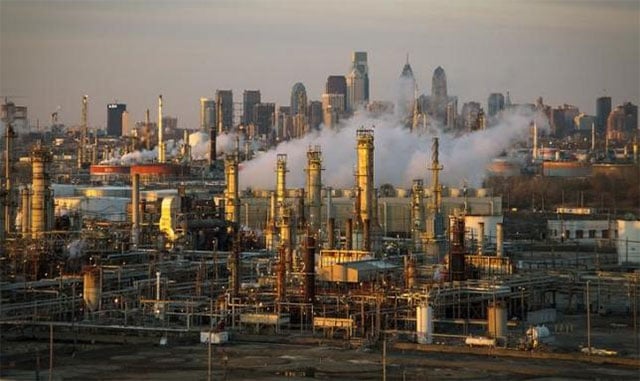Saudi Arabia, United Arab Emirates (UAE) and Pakistan are likely to join hands for setting up a new oil refinery in Balochistan at an estimated cost of $ 12 billion with an output of five to six lakh barrels per day.
According to the information available from the quarters concerned, new oil refinery is likely to be eset up in Gwadar as a unit of the Saudi Aramco Oil Refinery.
Saudi Arabia Energy Minister Khalid Al-Falih, who also serves as the chairman of Saudi Aramco’s Board, has visited Pakistan recently and also been to deep water port of Gwadar to check the proposed site for new oil refinery.
Currently, there are five players operating in the oil refining sector in Pakistan. These include Pak-Arab Refinery Limited (PARCO), Attock Refinery Limited (ARL), National Refinery Limited (NRL), Pakistan Refinery Limited (PRL) and Cnergyico Pk Limited (CPL). All of these refineries are hydro skimming, except PARCO which is a mild-conversion refinery.
Pakistan’s oil refinery capacity is about 450000 barrels per day equivalent to 20 million tons per annum.
The product slate typically comprises of energy products i.e. Naphtha, Motor Gasoline (MS) , High -Speed Diesel (HSD), Furnace Oil (FO), Kerosene, Jet fuel (JP-1 & JP-8), High-Octane Blending Oil Component (HOBC), Liquefied Petroleum Gas (LPG), Light Diesel Oil (LDO) and non-energy products.
Historically speaking, local refineries have supplied about 60 per cent of the country’s requirements of Diesel., 30 % of Motor Gasoline and 100 % of Fet Fuel for defence. The rest of the required quantity is imported as refined products. Pakistan has been importing a significant volume of petrochemicals, worth more than USD 2 billion annually, as there is no primary petrochemical production facility in the country.







